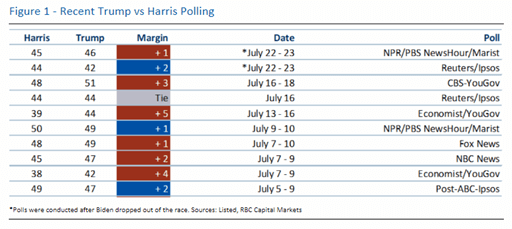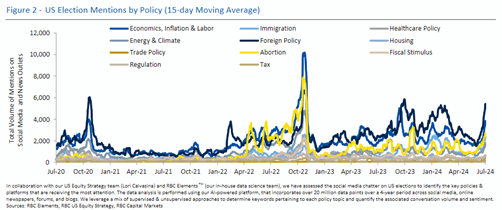Harris was a sponsor of the 2019 non-binding Green New Deal resolution, as well as a cosponsor of the Climate Equity Act of 2020. During the 2020 primaries, Harris called for a ban on fracking, and in 2016 as Attorney General, she sued the Obama Department of the Interior to prevent fracking off the California coastline, calling it “a threat to the health and wellbeing of California.” During the primaries, she also proposed a $10 trillion plan to combat climate change and called for a carbon tax.
Once on the Biden ticket, Harris moderated some of her positions to fully align with his more centrist stance within the party — for example, walking back the fracking ban comments on the campaign trail. The key question now is whether she reclaims her more progressive climate positions in hopes of energizing the progressive base and young voters or stays in the Biden energy and climate swim lanes in order to gain electoral advantage in must-win Rust Belt states like Pennsylvania.
Certainly, the Biden Administration has oscillated between climate idealism and pragmatism in the last four years. As we have previously noted, President Biden came into office vowing to accelerate the energy transition, and some of his earliest executive orders include reentering Paris Climate Accords and axing the Keystone XL pipeline. His initial decision to pause permitting for drilling on federal land was seen at the time as an early indication that Biden would look to shrink the US drilling footprint. Senator Elizabeth Warren’s staff reportedly played a key role in vetting administration appointees, and a number of them seemed to signal that natural gas was not a preferred part of the energy transition mix and should be largely kept in the ground.


However, when faced with higher retail gasoline prices and Europe facing a ruinous winter of discontent following Russia’s 2022 invasion of Ukraine, Biden quickly switched gears and sought to keep the oil market well-supplied and US LNG cargoes on the water. Even though President Biden did not publicly embrace US production, the arrival of Amos Hochstein, a former executive at natural gas company Tellurian, to the administration caused a perceptible shift in energy policy. At one point, Hochstein publicly criticized oil companies for returning cash to shareholders and not putting the money in the ground, and US production has continued to climb to record levels of over 13 mb/d during this administration.
However, as of late, the pendulum has seemingly swung back, with the White House announcing in January that it would pause approving new LNG export facilities to non- free trade agreement countries. During our conversations in Washington when the pause was announced, it was conveyed that the move was part of an attempt to appeal to the younger and more progressive voters who had grown more discontented with the administration, in part because of the war in Gaza. National Climate Advisor Ali Zaidi apparently drove the LNG export pause decision despite the concerns of some of the more pragmatic members of the administration. During our follow-on conversations in DC in the spring prior to the federal judge granting an injunction on the pause, some party strategists lamented that the export decision did little to turn the tide for Biden with the progressive base and had worsened the Democrats’ electoral fortunes in the shale- producing state of Pennsylvania. We will be closely watching how Harris walks the energy tightrope to maintain party unity and drive voter turnout, particularly as there appears to be no path to winning the White House without the Keystone State.
To the extent to which energy prices are impacted by the larger global geopolitical environment, we would note that Harris’ top foreign policy advisors, most notably the National Security Advisor to the Vice President Phil Gordon, come from Obama World, and were not core members of Biden’s inner circle. On the subject of the war in Gaza, while Harris has not broadly diverged from Biden’s strong support for Israel, she has been more vocal in public calls for a ceasefire, as well as more concerned about the humanitarian costs of the conflict. Additionally, Gordon was one of the architects of the 2015 JCPOA nuclear agreement and has publicly criticized efforts to engage in regime changes in the Middle East, citing US failures in both Libya and Iraq. Hence, we could foresee a significant contrast on Iran policy on the campaign trail between Harris and Trump. Regarding Russia, Vice President Harris is fully aligned with Biden’s strong support for Ukraine, which in turn presents voters with a striking contrast with President Trump’s Vice President pick JD Vance.
Helima Croft authored “Beyond the Ballot: Existing in the Context…,” published on July 23, 2024. For more information on the full report, please contact your RBC representative.
